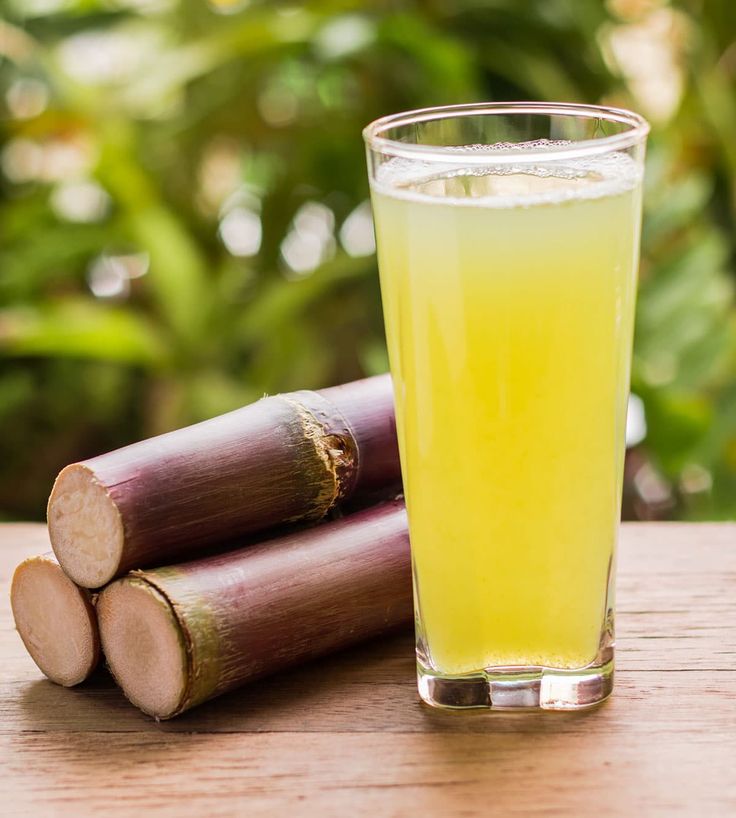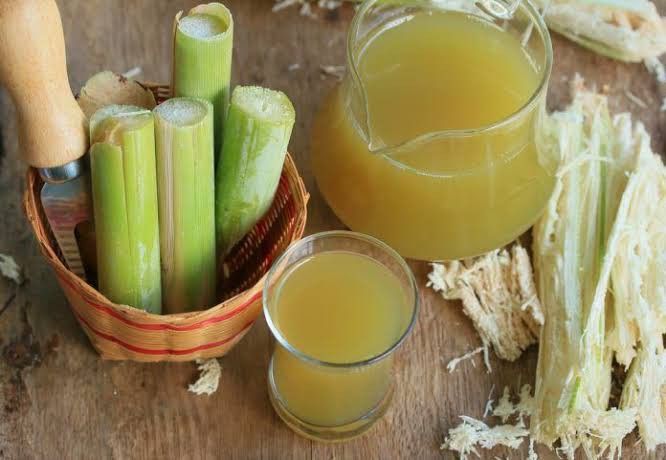Sugarcane is a tropical grass that belongs to the genus Saccharum and is widely cultivated for its high sugar content. It is one of the world’s most important crops, with over 80 countries producing sugarcane, and is used in a variety of products, including sugar, ethanol, and molasses.
Sugarcane is a tall, perennial grass that can grow up to 5 meters in height. It has long, slender leaves and produces stalks that are thick and fibrous. The juice extracted from the stalks is rich in sucrose, which is the primary source of sugar.
Sugarcane is typically harvested by hand or by machine, and the stalks are then transported to a processing plant where they are crushed to extract the juice. The juice is then boiled and evaporated to remove the water, resulting in raw sugar crystals. These crystals are then refined to produce white sugar, which is used in a variety of food products.
In addition to sugar, sugarcane is also used to produce ethanol, which is a renewable fuel source. The leftover fibers from the sugarcane plant, known as bagasse, are used as a biofuel to generate electricity in many countries.
Sugarcane is an important crop for many developing countries, providing income for farmers and supporting local economies. However, sugarcane production can also have negative impacts on the environment, such as deforestation, water pollution, and soil erosion. Therefore, efforts are being made to promote sustainable sugarcane production practices that reduce these negative impacts while still supporting the livelihoods of farmers.
Nutrition Facts
Sugarcane is a good source of several important nutrients, including:
- Carbohydrates: Sugarcane is rich in carbohydrates, with around 70% of its weight being composed of sucrose, glucose, and fructose.
- Fiber: Sugarcane is also a good source of dietary fiber, which can help regulate blood sugar levels and promote digestive health.
- Vitamins: Sugarcane contains small amounts of vitamins, including vitamin C and several B vitamins, such as thiamin and niacin.
- Minerals: Sugarcane is a good source of several minerals, including calcium, magnesium, and potassium.
- Antioxidants: Sugarcane juice contains antioxidants, such as polyphenols, which can help protect against cellular damage caused by free radicals.
However, it is important to note that sugarcane is also high in calories and carbohydrates, which can contribute to weight gain and increase the risk of diabetes and other chronic diseases if consumed in excess. Therefore, it is best to consume sugarcane in moderation as part of a balanced diet. Additionally, sugarcane juice should be consumed in its raw form, as adding sugar or other sweeteners to it can significantly increase its calorie and carbohydrate content.
Health Benefits of Sugarcane Juice


The top benefits of sugarcane juice include the following.
Boosts Energy
Unlike drinks and foods that are packed with processed sugar and high-fructose corn syrup, the natural supply of sugars in sugarcane juice can provide a solid stock of energy that can start your day off strong and regulate the release of glucose in your body for a healthy “sugar high.” Sugarcane juice is an excellent natural choice to rehydrate the body and stave off fatigue.
Skin Care
One of the components of sugarcane juice is alpha hydroxy acids, specifically glycolic acid, which has been linked to antioxidant effects on the skin. This juice, when regularly consumed, can clear up skin inflammation and infections, while also reducing signs of aging, such as wrinkles, blemishes, discoloration, and scars.
Support during Pregnancy
Sugarcane juice taken during pregnancy can help to boost metabolism, improve digestion, reduce symptoms of morning sickness, and provide energy throughout the day, thanks to its low glycemic index. It can boost the immune system naturally, rather than having to rely on pharmaceuticals or antibiotics. This juice also helps eliminate symptoms of constipation, another frequent complaint by pregnant women. That being said, as with any addition to a pregnancy diet, run the idea past your doctor first.
Freshen Breath & Fight Cavities
Sugarcane juice is often consumed as a home remedy for tooth decay and resulting bad breath. Sugarcane has minerals such as calcium and phosphorus that protect the enamel of your teeth, protect against decay, and strengthen your teeth. The high doses of nutrients in this juice help counter bad breath due to nutrient deficiency.
Bone Mineral Density
Intake of this juice boosts calcium, iron, potassium, magnesium and manganese levels in the body, making it a critical part of strengthening your bones. This, in turn, helps to prevent the development of osteoporosis. A single glass of this juice every day can keep your bones strong as you age.
Improved Digestion
There are certain laxative qualities of sugarcane juice, thanks to its supply of dietary fiber. The fiber helps stimulate peristaltic motion, heal inflammation in the gut, and relieve symptoms of constipation, bloating and cramping.
Lower Cholesterol Levels
Studies have found that drinking raw sugarcane juice can help to lower overall cholesterol levels, both LDL cholesterol and triglycerides, which can further protect your heart.
Stress Management
Some of the amino acids found in sugarcane juice, in addition to tryptophan and magnesium, can help to balance your stress hormone levels and even help to induce sleep. If you regularly suffer from insomnia or interrupted sleep and give relief from insomnia or interrupted sleep.
Normal Blood Pressure
With its supply of potassium, sugarcane juice is able to reduce the strain and tension in blood vessels and arteries, effectively lowering blood pressure, and helping you maintain a healthy cardiovascular system [9]
Strengthened Immune System
With a rich supply of vitamin C and antioxidants, this juice is known to stimulate and boost the immune system, and reduce infections in the stomach, liver and respiratory tracts.
Prevention of Kidney Stones
Numerous studies have linked the consumption of sugarcane juice with a lower occurrence of urinary tract infections and a lower risk of developing kidney stones. Essentially, this juice detoxifies the body and protects the function of the body’s detoxing centers.
Sugarcane Juice for Weight Loss
Sugarcane juice is rich in dietary fiber that helps to bind with fat and prevent it from being stored in the body, while also making you feel full, thus preventing snacking and overeating. Your digestive health will also be boosted by fiber, helping to relieve constipation and improving your gut’s ability to absorb critical nutrients. The alkaline nature of this juice helps to create the ideal environment for fat-burning, rather than an overly acidic system, while the high natural sugar content provides a huge source of energy, which increases activity and stimulates more calorie-burning.
Sugarcane Juice for Diabetes
This juice has a surprisingly low glycemic index, based on the types of sugars that are found in the juice, so it is actually more beneficial than your average fizzy drink or soda, as the sugars are more slowly absorbed and processed by the body, preventing the sugar rush that many people associate with high glycemic beverages. For people not suffering from Type 2 diabetes, this drink can actually help to regulate your blood sugar levels, when consumed in moderation.
However, for patients with Type 2 diabetes, it is important to speak with a doctor before consuming the juice.
Summary
Sugarcane is a tall perennial grass that is cultivated for its juice, which is used to make sugar and other sweeteners. It is a popular crop in many parts of the world, particularly in tropical and subtropical regions.
Sugarcane and sugarcane juice are both rich in several important nutrients, including carbohydrates, fiber, vitamins, and minerals. Sugarcane juice is also a good source of antioxidants, which can help protect against cellular damage caused by free radicals.
While sugarcane and sugarcane juice have some potential health benefits, they are also high in natural sugars and calories, which can contribute to weight gain and increase the risk of diabetes and other chronic diseases if consumed in excess. Additionally, sugarcane fields may be treated with pesticides and other chemicals, which can contaminate the crops and pose health risks to those who consume them.
Overall, sugarcane can be a healthy addition to a balanced diet when consumed in moderation and in its natural form. However, like any food or beverage, it should not be relied upon as a sole source of nutrition and should be consumed as part of a varied and balanced diet. Individuals should also be aware of the potential risks associated with the consumption of sugarcane and take appropriate precautions to minimize them.